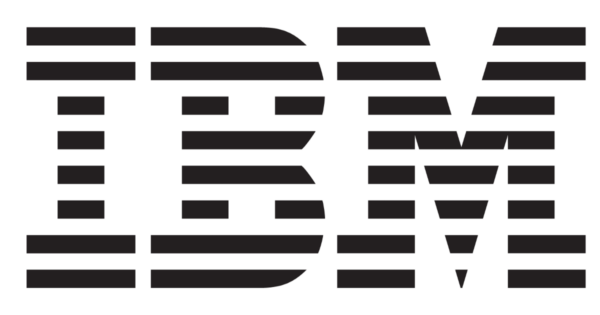- CEO confidence in the effectiveness of basic IT services nearly halves over 10 years
- 43% of surveyed tech CxOs say concerns about their technology infrastructure have increased because of generative AI
ARMONK, NY – August 21, 2024 – A new IBM (NYSE: IBM) Institute for Business Value study found that while IT leaders are preparing organizations for accelerated generative AI adoption, C-suite executives’ confidence in their IT team’s ability to deliver basic services is declining.
The global study* of 2,500 of C-level technology executives (tech CxOs) from 34 countries revealed that less than half (47%) of those surveyed think their IT organization is effective in basic services compared to 69% surveyed in 2013. Today, only 36% of surveyed CEOs and 50% of surveyed CFOs believe IT is effective at basic services, down from 64% and 60%, respectively since 2013.
At the same time, 43% of surveyed tech CxOs say their concerns about their technology infrastructure have increased over the past six months because of generative AI, and they are now focused on optimizing their infrastructure for scaling generative AI. Respondents report they are currently spending 29% more on hybrid cloud than AI, and, over the next two years, they expect to spend half (50%) their budget on hybrid cloud and AI combined.
As tech CxOs prioritize generativeAI-ready infrastructure investments, two-thirds of surveyed CEOs cite that a strong tech CxO and CFO collaboration is critical to their organization’s success. However, a disconnect exists: only 39% of surveyed tech CxOs say they collaborate with finance to embed tech metrics into business cases, and just 35% of surveyed CFOs report being engaged early in IT planning to set strategic expectations. Among the high-performing tech CxO respondents, the study found that organizations that connect technology investments to measurable business outcomes report 12% higher revenue growth.
“Tech leaders today are grappling with multiple business demands, made even more complicated by the rise of generative AI. They must navigate the challenges of modernizing their IT infrastructure and scaling generative AI to support the business’ core competitive advantage, ” said Mohamad Ali, Senior Vice President, IBM Consulting. “In this evolving AI landscape, the relationship between tech CxOs and their finance counterparts has never been more important, aligning technology spend with business outcomes to drive real value from AI investments.”
Responsible AI is top of mind for tech CxOs, but there is a gap between intention and actions
- For the majority (80%) of CEOs surveyed, transparency in their organization’s use of next-generation technologies, such as generative AI, is critical for fostering trust.
- Yet, most tech CxOs acknowledge their organizations are falling short on delivering core responsible AI practices at scale:
- Only half (50%) of respondents say they are delivering on key responsible AI capabilities for explainability, and even fewer say they are delivering capabilities for privacy (46%), transparency (45%) and fairness (37%).
- 41% of tech CxOs surveyed reported an increase in their concerns about regulation and compliance as a barrier to generative AI over the last six months.
- However, most (70%) tech CxO respondents see regulatory change as an opportunity versus only 50% of CEOs.
Tech CxOs are driving their organizations to rethink their talent strategy to meet the needs of the generative AI era
- 63% of tech CxOs surveyed agree that their competitiveness will hinge on their ability to attract, develop and retain top talent.
- However, 58% of tech CxOs surveyed say they are having difficulty filling key technology roles, and only 27% of respondents identify talent as a top priority.
- Over the next 3 years, tech executives anticipate a surge in skill scarcities over key areas, including cloud (+36%), AI (+29%), security (+25%) and privacy (+39%).
- 40% of respondents report an increase in their concern over the past six months.
- More than half (54%) of tech CxOs surveyed blame financial pressures for hindering their ability to invest in technology talent.
- Many tech CxOs surveyed (69%) say they are turning to business partners as a source for specialized skills
To view the full study, including recommendations for technology leaders, visit: https://www.ibm.com/thought-leadership/institute-business-value/en-us/report/cxo
*Study Methodology
The IBM Institute for Business Value (IBV), in cooperation with Oxford Economics, surveyed 2,500 C-suite technology leaders, including Chief Technology Officers (CTOs), Chief Information Officers (CIOs), and Chief Data Officers (CDOs) from 34 countries and 26 industries during Q1 2024. The IBM IBV data analytics team performed a series of in-depth analyses and data transformations to identify a group of high-performing technology organizations corresponding to clear outperformance on a variety of financial and operational measures. The study also includes data from the 2024 CEO Study and upcoming 2024 CFO Study.
The IBM Institute for Business Value, IBM’s thought leadership think tank, combines global research and performance data with expertise from industry thinkers and leading academics to deliver insights that make business leaders smarter. For more world-class thought leadership, visit: www.ibm.com/ibv.
About IBM
IBM is a leading provider of global hybrid cloud and AI, and consulting expertise. We help clients in more than 175 countries capitalize on insights from their data, streamline business processes, reduce costs and gain the competitive edge in their industries. Thousands of government and corporate entities in critical infrastructure areas such as financial services, telecommunications and healthcare rely on IBM’s hybrid cloud platform and Red Hat OpenShift to affect their digital transformations quickly, efficiently and securely. IBM’s breakthrough innovations in AI, quantum computing, industry-specific cloud solutions and consulting deliver open and flexible options to our clients. All of this is backed by IBM’s long-standing commitment to trust, transparency, responsibility, inclusivity and service. Visit www.ibm.com for more information.

